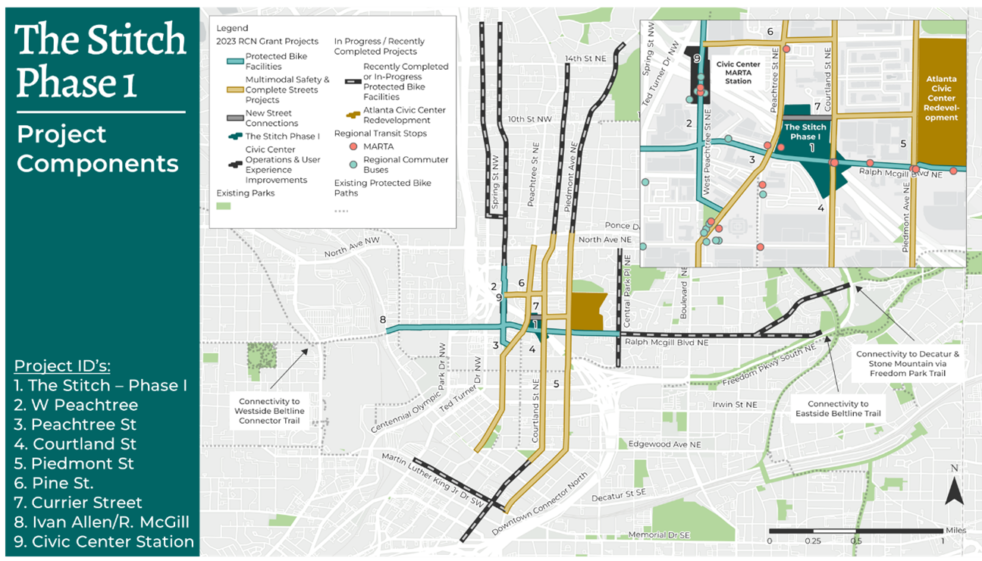The Stitch, a project determined to connect downtown Atlanta neighborhoods, pushes its construction plans to later dates after the Big Beautiful Bill makes significant cuts to federal funding.
The Stitch project aims to turn parts of the 75 and 85 Interstates Downtown Connector into a community green space. It will span 17 acres of community greenspace upon completion, provide more environmentally friendly modes of transportation along these parts, increase the usage of streets as gathering spaces and show more of Atlanta’s cultural history through a blend of history and arts.
Planning for the project came to a halt when President Donald Trump signed the Big Beautiful Bill into law on Independence Day. The legislation revoked $151 million in federal grants from the project, removing approximately three-quarters of the project funding for phase one construction.
The project stems back to the 2000s with talks of extending Mayor’s Park. In 2015, the Atlanta Downtown Improvement District (ADID) authorized a study to revisit the idea and included the Civic Center MARTA Station in the vision. The project then received its official name “The Stitch,” and ADID created a committee overseeing further testing and pre-development plans for the next four years.
Starting in 2020, information about the project and its goals was shared with the public, and the committee pursued funding for ensuing developmental steps. The first of three phases for the project consists of pavilions for events, tree canopies, plazas, lawns, urban gardens and much more. This will be located between Ivan Allen Jr. Boulevard Northeast and Currier Street Northeast and is called the “heart of the Stitch,” as the other phases will extend from these spaces.
The project has received funding from the Department of Housing and Urban Development, Atlanta Regional Commission, ADID and the City of Atlanta. Additionally, the United States Department of Transportation (USDOT) Reconnecting Communities Grant Program awarded the committee $158 million. As of March 2024, it was announced by Congresswoman Nikema Williams that the project had gained a total of $207,645,161 in federal funding.
The recent federal grant cuts will not eliminate the project. In fact, according to the Central Atlanta Progress (CAP) and ADID, “The team will complete shovel-ready engineering, permitting, and approvals for Phase 1 by mid-2026. Meanwhile, Mayor Dickens and GDOT leadership have affirmed their support for advancing this transformative project for Atlanta.”
